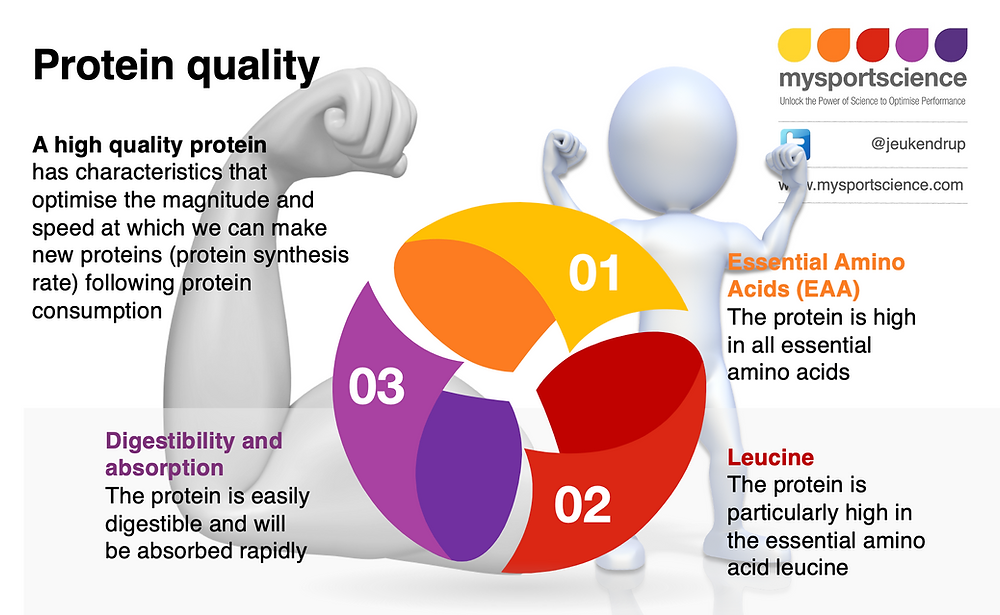Understanding the Protein Powder Landscape
With countless options on the market, choosing the right protein powder can feel overwhelming. The most common varieties include vegan blends, whey isolate or concentrate, casein, and beef isolate. Each has a distinct amino acid profile, digestibility, and intended use. Knowing how they differ helps tailor your choice to your fitness and dietary goals.
The Role of Amino Acids in Protein Quality

Protein quality is largely determined by its amino acid profile. Leucine is a standout—it plays a critical role in initiating muscle protein synthesis. For optimal muscle repair and growth, a high-leucine content (around 2.5g per serving) is desirable. Whey protein naturally contains high levels of leucine and other essential amino acids, making it one of the most effective options for post-workout recovery. Look for protein powders where leucine is the most abundant amino acid, with isoleucine and valine close behind in a 2:1:1 ratio.
Whey Protein: Fast and Proven
Whey protein isolate is a fast-digesting option ideal for post-workout consumption. It’s rich in bioavailable protein and low in fat and carbohydrates. Whey concentrate is slightly less refined, often containing more lactose and fat, but can be a more budget-friendly alternative. Both are excellent for stimulating muscle repair quickly after resistance training.
Casein Protein: The Nighttime Choice
Unlike whey, casein digests slowly—making it a smart option before bedtime. Its extended release of amino acids may help reduce muscle breakdown during overnight fasting. While some evidence questions the necessity of timed protein intake, casein is still popular among bodybuilders aiming to maintain lean mass.
Beef Isolate: Animal-Based Without Dairy
Beef protein isolate, especially from grass-fed sources, is a non-dairy alternative with solid amino acid content. It’s particularly useful for those with lactose intolerance. However, it may not mix as easily and often requires blending for a smoother texture. The bioavailability is decent, and some formulations allow customization with added amino acids for a tailored approach.
Vegan Protein: Plant-Based Challenges and Wins
Vegan protein powders—made from peas, rice, hemp, or blends—can be effective, but quality matters. Because plant sources are naturally lower in protein density, vegan powders often contain higher levels of carbohydrates and fats. For muscle growth, it’s crucial to choose a blend that includes all essential amino acids and especially one that is leucine-rich.
Look for third-party tested products that specify the amount of each amino acid. Many inferior vegan options lack transparency and may use proprietary blends that hide critical information.
Common Pitfalls to Avoid
- Amino Spiking: Some manufacturers inflate protein numbers by adding cheap amino acids like glycine. These do not contribute to muscle repair but boost nitrogen levels in lab tests.
- Proprietary Blends: Avoid products that don’t list the exact amounts of key amino acids. Transparency is key.
- Low-Quality Sweeteners: Many commercial powders contain artificial sweeteners that can cause digestive issues. Opt for products with natural or minimal sweeteners.
Digestibility and Bioavailability: The Bigger Picture
While protein quantity is essential, how well your body absorbs it—known as bioavailability—is equally important. Egg white protein ranks very high in this category. Though often overlooked, it’s a complete and efficient protein source. Many experts consider eggs nearly perfect due to their amino acid profile and micronutrient density.
How Much Protein Do You Really Need?
The longstanding myth that your body can only absorb 30 grams of protein per meal has been debunked. Recent research suggests that protein can be utilized over a 24-hour period, supporting the idea that consuming large amounts in fewer meals can still be effective. According to a study published in the Journal of the International Society of Sports Nutrition, total daily intake is more important than exact timing or distribution.
Why Protein Becomes Even More Important with Age
As you age, your ability to digest and absorb protein declines. This makes protein quality and quantity even more important for older adults to maintain muscle mass, mobility, and metabolic health. Protein shakes are an easy and efficient way to help meet those higher needs without requiring large meals.
Summary: Which Protein Should You Choose?
| Type | Best For | Digestibility | Notes |
|---|---|---|---|
| Whey Isolate | Post-workout recovery | Fast | High leucine; mixes easily |
| Casein | Nighttime use | Slow | Anti-catabolic during sleep |
| Beef Isolate | Dairy-free option | Moderate | Mixing may require a blender |
| Vegan Blends | Plant-based diets | Varies | Choose blends with complete amino profiles |
Final Thoughts
Choosing the right protein powder depends on your diet, budget, digestive health, and fitness goals. Focus on transparent labeling, third-party testing, and amino acid balance—especially leucine content. Whether you’re aiming to build muscle, retain lean mass while aging, or simply support a healthier lifestyle, investing in the right protein supplement is worth it.
Video Summary
For more evidence-based nutrition and fitness tips, subscribe to our channel: https://www.youtube.com/@Vitality-and-Wellness
Looking for extra help with your fitness goals? Check out the personalized Nutrition Program at Parkway Athletic Club: parkwayathleticclub.com/nutrition
Disclaimer: This content is for educational purposes and does not replace personalized medical advice.



